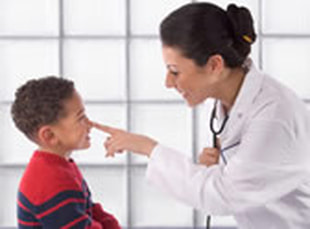
It is essential that the school office staff have current working phone numbers (cell, home, employment) and emergency contact person information. Please inform the school staff of all changes in numbers and addresses. This page covers some of the common problems and questions about school and health. First aid is provided by school personnel following the action steps outlined in the First Aid/Emergency Guidelines for School Personnel. For further information, please call your school nurse.
School nurses are assigned to several schools. They are Registered Nurses who hold a minimum of a Bachelors Degree. They are responsible for implementing the comprehensive school health program, as well as coordinating the activities of the health office. The school nurse can be contacted by calling the school or Health Services at 799-7443.
First aid safety assistants (FASAs) are assigned to one school. They are required to have a high school diploma and be certified in CPR/AED and basic first aid. Their primary role is to perform first aid and emergency care and administer medications.
COVID-19
School nurses and FASAs work together to maintain student health and safety.
*COVID-19 and Reducing the Spread: Information for Parents/Guardians of Clark County School District Students (English)
https://eduvision.tv/l?tgDAgA
*COVID-19 and Reducing the Spread: Information for Parents/Guardians of Clark County School District Students (Spanish)
https://eduvision.tv/l?tgDAOg
What happens when your child comes to the Health Office?
The student’s temperature will be taken if he/she has complaints of an illness. If the student’s temperature is 101 degrees Fahrenheit or higher, a parent/guardian will be required to pick up the student.
For minor complaints, students without a temperature will be encouraged to return to class. If they are unable to return to class, a parent/guardian will be contacted to pick them up.
First aid and emergency care is administered to the student based upon the CCSD First Aid/Emergency Care Guidelines for Handling Accidents and Illnesses Occurring at School.
A student suspected of having a contagious or infectious disease will be required to be picked up by a parent/guardian. Verification by a licensed health care provider or the Health Department that the student is not contagious is required for the student to return to school.
Students are screened as requested by teacher, student or parent/guardian in the health office or a designated screening area.
IMMUNIZATIONS
Nevada State Law states that for a student to enroll in school the parent/guardian must provide a certificate stating that the child has been immunized and is complying with the schedules established by the Southern Nevada Health District (SNHD).
Immunization records must be current for enrollment. Copies of immunization records will be kept for school records.
Refer to the Clark County School District website for current immunization requirements: http://www.ccsd.net/
For further information or clinic locations, call the SNHD at 759-0850 or refer to http://www.southernnevadahealthdistrict.org/
IS MY CHILD TOO SICK FOR SCHOOL?
If any of the signs and symptoms noted below is present, your child should be kept home. He or she may be contagious to other students and recovery time may be slowed. If symptoms persist you may want to contact your licensed health care provider.
- Elevated temperature (100° or greater)
- Diarrhea
- Persistent headache
- Inflamed/sore throat
- Nausea/vomiting
- Unexplained rash
- Wheezing
- Earache
HEALTH PROBLEMS
Each year the parent/guardian is required to complete the Supplemental Health Card to inform the health office staff of any health problems and/or changes in your child’s health status.
Health problems need to be brought to the attention of the school nurse promptly. The following is a list of examples:
- ADD/ADHD
- Allergies (food, medications, animals and environmental agents)
- Arthritis
- Asthma
- Blood disorders
- Cancer
- Diabetes
- Genetic disorders
- Hearing loss or aids
- Heart conditions
- Glasses or contacts
- Migraines
- Orthopedic conditions
- Psychological diagnoses
- Seizures
- Skin disorders
- Vision impairment
- Other disorders requiring medication
MEDICATION AT SCHOOL
Many children must be on medication around the clock. A student needing medication during school hours must have a completed Medication Release form which can be obtained from the health office. Both prescription and over-the-counter medication must have been prescribed by a licensed health care provider.
Students are allowed to self-administer prescribed medication for asthma and severe systemic allergic reaction (anaphylaxis) under certain circumstances. Specific guidelines must be met. The form Request to Authorize Student Self- Administration of Prescribed Medication for Asthma/Anaphylaxis must be completed. This form can be obtained from the health office.
SCREENING
School nurses detect health problems through state mandated screening. New students and those in grades specifically designated by the Health Services Department will be screened for vision, hearing and scoliosis. Other screenings may include dental and height/weight measurements.
These screenings do not substitute for a professional exam. Problems detected in screening will be referred to the parent/guardian for further medical evaluation. The parent/guardian is responsible to follow up on referrals issued. The school nurse may be contacted if assistance is needed.
If a parent/guardian has a specific health concern, he/she can request an individual screening by contacting the school nurse.
